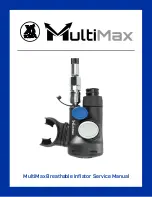
Ultrasonic milkanalyser
Operation manual
22/92
This procedure prevents gathering milk fat residues and milk stone on the
sensor. The milk stone consists of milk solids, calcium, iron, sulphates,
magnesium, etc. All these substances form layer on the pipe and sensor’s
walls, which leads to deviations in the measurement results and blocking up
the piping.
The company-producer recommends usage of the chemicals, supplied with
the analyser
– alkaline and acidic (Lactodaily and Lactoweekly). They can be
ordered separately or together with the analyser. Try to use only these
chemicals for cleaning the analyser.
In case you missed to order these chemicals, the alternative is to use alkaline
and acidic cleaning solutions for dairy equipment by one the companies,
producing such chemicals, as for example:
http://www.diversey.com
http://www.ecolab.com
http://www.calvatis.com
4.1. Automatic cleaning the analyser
Analyser's contamination as a result of the irregular cleaning is the basic
reason for inexactness during measurement. In order to be avoid this, in the
milk analysers with peristaltic pump is embedded automatic cleaning. For this
purpose the analyser has to be prepared on the following way:
The reservoir with the cleaning solution has to be connected towards the
analyser and outgoing pipe towards reservoir for collecting the measured
samples and used cleaning solution, as is shown on Fig.7.
Pay attention to the pipes in both reservoirs. The pipe in the reservoir with the
cleaning solution has to be well dipped in the cleaning solution while the pipe
in the reservoir with the already used samples and cleaning solution MUST
NOT be dipped in the liquid.
Pay attention to the level of the cleaning solution in the reservoir. Add
solution when the level is below 2/3!
Description of the cleaning procedures:
There are two ways of cleaning the analyser embedded in it
– current and
end (final) cleaning.
















































